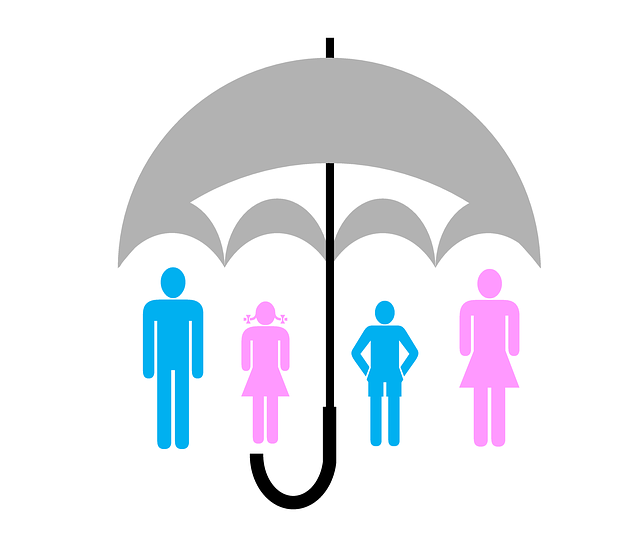This text explores the differences between group vs individual health insurance, highlighting key considerations for people choosing healthcare coverage. Group plans, offered through employers, offer lower costs and broader network coverage due to risk pooling but have limited customization. Individual policies provide personalized coverage options, flexibility in plan duration, and control over specific benefits at a higher cost. When deciding, compare factors like premiums, deductibles, copays, out-of-pocket maximums, and coverage for pre-existing conditions to select the best option based on individual health needs and financial situation.
“Unsure about your health insurance options? Dive into the comparison between group and individual health insurance plans, two prominent paths to secure your well-being. Understanding the nuances of each is key to making an informed decision. Group insurance offers cost advantages and accessibility, ideal for employers aiming to benefit their employees. Individual plans cater to those outside employer networks, providing personalized coverage options and tailored protection. Explore key differences in coverage, costs, and benefits to choose the right plan for your unique needs, ensuring you’re prepared for life’s unexpected health events.”
Understanding Group Health Insurance: Benefits and Types

Group health insurance is a powerful tool for organizations and employers looking to provide comprehensive healthcare coverage to their employees. Unlike individual health insurance policies, group plans are designed to cover a larger pool of people, often resulting in lower monthly premiums for each member. This type of insurance offers various benefits tailored to the specific needs of businesses, such as simplified administration, tax advantages, and the ability to customize coverage options based on the employer’s preferences.
There are several types of group health insurance plans available, including HMO (Health Maintenance Organization), PPO (Preferred Provider Organization), and POS (Point of Service) networks. Each plan has its own structure and rules regarding provider choices, copayments, and deductibles. For instance, an HMO typically requires members to choose a primary care physician who coordinates their healthcare needs, while a PPO offers more flexibility by allowing visits to out-of-network providers at a higher cost. Understanding these differences is key when comparing group health insurance plans, especially in the context of group vs individual health insurance, as it helps employees make informed decisions about their healthcare coverage.
Individual Health Insurance: Who Needs It and Why?

Individual health insurance is a crucial option for those who are not covered by employer-sponsored plans or government programs like Medicare or Medicaid. It provides protection and peace of mind, ensuring access to medical services when needed. In today’s world, where healthcare costs continue to rise, having individual coverage can be a game-changer. Unlike group health insurance, which is often offered through employers, individual policies offer more flexibility in terms of plans, coverage options, and premium prices.
For self-employed individuals, freelancers, or those between jobs, individual health insurance offers a safety net. It covers various medical expenses, including doctor’s visits, hospital stays, prescription drugs, and preventive care. Unlike group plans that might have limitations based on the collective needs of employees, individual policies can be tailored to personal health needs, offering broader coverage for specific conditions or specialized treatments.
Key Coverage Differences Between Group and Individual Plans

When comparing group versus individual health insurance plans, understanding key coverage differences is essential for making an informed decision. Group plans, typically offered through employers, often cover a larger network of healthcare providers and may include additional benefits like prescription drug discounts or wellness programs. Premiums for group insurance are usually lower due to the pooling of risks among many policyholders. However, these plans might have stricter eligibility criteria and renewal policies compared to individual plans.
In contrast, individual health insurance is purchased directly from an insurer and tailored to personal needs. While it offers more customization options and broader coverage choices, premiums tend to be higher. Individual plans may not cover as extensive a network of providers, and pre-existing conditions could impact pricing or availability of coverage. Nonetheless, these plans provide greater flexibility in terms of policy duration and eligibility requirements, catering to unique healthcare needs and financial circumstances.
Group Insurance Advantages: Cost-Effectiveness and Accessibility

Group health insurance plans offer several advantages over individual policies, particularly in terms of cost and accessibility. One of the most significant benefits is the potential for lower premiums. When a group policy is purchased, multiple individuals’ coverage is combined, allowing insurers to spread out risks more evenly. This pooling of risks can result in more affordable monthly payments for each member compared to what they’d pay for individual plans.
Additionally, group insurance makes healthcare coverage more accessible to those who might not otherwise afford it. Many employers offer group plans as a benefit to their employees, making quality health insurance readily available at a reduced cost. This accessibility is especially valuable for low-wage earners and part-time workers who may struggle to find affordable individual policies that match the level of coverage provided by group plans.
Navigating Individual Plans: Personalized Coverage Options

Navigating the world of health insurance can be challenging, especially when comparing group plans offered by employers with individual plans purchased directly. Individual health insurance plans offer a personalized approach, catering to unique needs and preferences. These plans allow you to select specific coverage options that align with your lifestyle and healthcare requirements. Whether it’s choosing between different network providers, adding family members, or selecting prescription drug benefits, individual policies provide flexibility.
Unlike group insurance, where choices might be limited by the employer’s selection, individual plans empower you to make informed decisions. This customization ensures that your health insurance coverage is tailored to your specific circumstances, offering peace of mind and control over your healthcare expenses. When considering group vs individual health insurance, recognizing these personalized coverage options can help you make an informed decision based on your unique needs.
Comparing Premium Costs: Group vs. Individual Health Insurance

When comparing health insurance options, one of the primary factors to consider is the premium cost, which can vary greatly depending on whether you opt for group or individual health insurance. Group health insurance plans are typically more affordable as they’re often secured through employers or other organizations, leveraging their collective buying power to negotiate lower rates with insurers. These plans usually have a set monthly premium and may offer additional benefits tailored to the needs of the specific group.
In contrast, individual health insurance policies are bought directly from insurance companies by an independent individual. While this offers more customization in terms of coverage and deductibles, it often comes at a higher price point. The cost can be influenced by various factors such as age, location, pre-existing conditions, and the level of coverage desired. Therefore, when deciding between group and individual health insurance, understanding these financial implications is crucial to finding a plan that aligns with your budget and healthcare needs.
Deductibles, Co-pays, and Out-of-Pocket Maximums Explained

When comparing health insurance plans, understanding key terms like deductibles, co-pays, and out-of-pocket maximums is crucial, especially when differentiating between group vs individual health insurance policies. Deductibles represent the amount you must pay out-of-pocket before your insurance kicks in, typically for medical expenses. Lower deductibles mean you’ll pay less upfront but potentially higher monthly premiums.
Co-pays, or copayments, are fixed amounts you pay for specific healthcare services, like doctor’s visits or prescriptions. They vary based on the type of service and plan chosen. Group health insurance plans often feature lower co-pays due to their larger pool of enrollees, making them more cost-effective for routine care. In contrast, individual policies may have higher co-pays but could offer more flexibility in choosing healthcare providers. Out-of-pocket maximums cap the amount you can be charged for covered services within a policy year, protecting you from unexpectedly high medical bills.
Coverage for Pre-existing Conditions: A Critical Comparison

When comparing health insurance plans, one of the most critical aspects to consider is coverage for pre-existing conditions. Both group and individual health insurance policies have their unique approaches to addressing this issue. Group health insurance plans, typically offered through employers, often have fewer restrictions when it comes to pre-existing conditions. Insurers may provide coverage with no waiting period or even offer retroactive coverage if certain criteria are met. This is especially beneficial for individuals with chronic illnesses who need continuous care.
In contrast, individual health insurance policies might have more stringent requirements. They often require a waiting period before covering pre-existing conditions, which can be a significant concern for those seeking immediate assistance. Additionally, individual plans may exclude specific conditions or charge higher premiums due to the increased risk. Understanding these differences is vital when selecting a policy, ensuring that you or your group receive comprehensive coverage without unexpected gaps in access to care.
Choosing the Right Plan: Making an Informed Decision

When selecting a health insurance plan, understanding the difference between group and individual policies is key. Group health insurance is typically offered through employers, covering employees and often their families as well. This option usually comes with lower premiums because the risk is spread across many individuals. On the other hand, individual health insurance is purchased directly from insurance companies and covers only the policyholder. While it might be more expensive, it offers greater flexibility in terms of coverage choices and allows for customization to fit personal needs.
Considering your circumstances is essential. If you have a stable job and access to a group plan through your employer, that could be a cost-effective and comprehensive option. However, if you’re self-employed or between jobs, individual insurance might be the better choice, providing you with more control over your coverage and ensuring continuity in case of unexpected health events.
